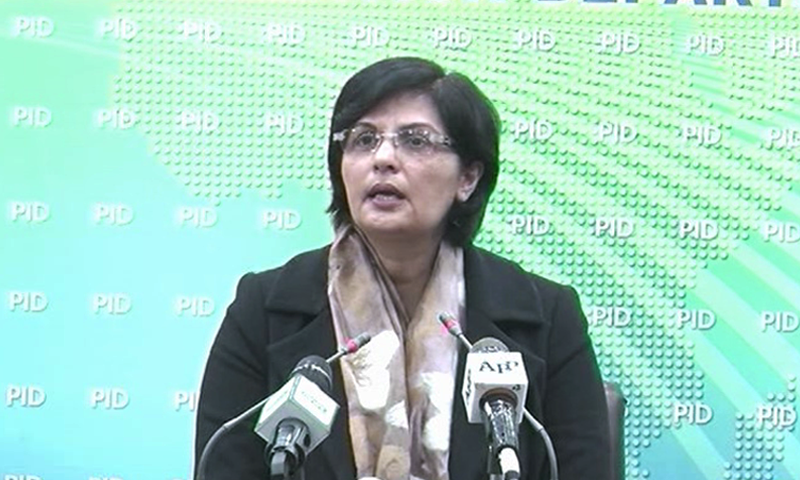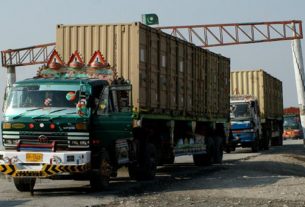Special Assistant to the Prime Minister on Social Protection and Poverty Alleviation Sania Nishtar, at a news conference in Islamabad on Thursday, defended the government’s decision to remove approximately 800,000 names from the Benazir Income Support Programme (BISP) database.
“Beneficiaries for the BISP were identified through a survey conducted 10 years ago. People’s [financial] situation can change during 10 years. It is also possible that the beneficiaries initially identified by the survey were never truly deserving [of the stipend].”
Defending the decision to strike the names from the database, Nishtar said the government had crafted certain criteria for the beneficiaries and had also taken the National Database and Registration Authority (Nadra) on board.
“We have tried our best to choose objective criteria so that a forensic audit can be conducted down the line if the need arises.
“This is not an ad-hoc decision that was made on a whim or on a political basis.”
Nishtar added that government employees will not be included among the beneficiaries. “Government employees, regardless of their grade, are paid accordingly. Which means that they will never be included among the country’s poorest.”
“Deserving citizens will be brought in place of the 800,000 names that were removed from the database,” she said.
Explaining the new criteria, the PM’s aide said women as well as their husbands who have travelled abroad once or on multiple occasions, own a car, have a PTCL phone bill of more than Rs1,000 over a six-month period or a mobile phone expense of more than Rs1,000 in the same time frame will not be included in the list of beneficiaries.
“Citizens, and their spouses, who have paid for Nadra’s executive services when applying for a passport, have three or more family members who have availed Nadra’s executive CNIC services or are employees of the government, railways, post office or BISP will also be excluded from the list.”
She reiterated that there was no political interference in the decision. “It is a purely technical decision. In our eyes, such individuals are not deserving [of the stipend].”
“Moving forward, all beneficiaries will be identified through a digital survey. Further, desks will be established at a district level for identifying families who cannot complete the digital survey.
“Once we have their data, we will run it through data analytics to narrow down the list. Once this is completed, the data will be filtered again, before individuals are issued a stipend,” she explained.
“I would like to make it clear that BISP is the name of a law. BISP is the name of a department. We are not trying to repeal the law or trying to change its name,” she clarified.
“We are launching a new programme, the Kifalat programme, which comes under the Ehsaas programme.
“Under this programme, no beneficiary can avail the stipend without fulfilling the criteria. We will also not rely solely on surveys but will also use data analytics. However, the door for repeals will always remain open,” she expressed.
“We have selected two commercial banks to partner with. We have learnt from mistakes of the past and have made tight service-level agreements. We will ensure that there is no identity theft. We are moving towards biometric payments,” she said.
“Cards will be made obsolete from Dec 15.
“Further, the monthly stipend will be adjusted to take inflation into account . During the last cabinet meeting, it was decided to raise the stipend by Rs500.”
She added that citizens living in 216 villages along the Line of Control (LoC) will also be included in the programme.
“Previously, only women below a certain poverty level were given a monthly stipend. Now, we have decided that all women with CNICs living at the LoC will be given a stipend.”
The changes in the BISP database were made in the wake of reservations expressed by some cabinet members in previous meetings that the supporters of opposition parties, especially those backing the Pakistan Peoples Party, were benefiting from the programme, while those belonging to the ruling Pakistan Tehreek-i-Insaf were being ignored.
Earlier on Wednesday, Bakhtawar Bhutto, daughter of former prime minister Benazir Bhutto, criticised the government for depriving poor women of monthly stipend.
“Almost 1 million beneficiaries of the only social safety net for women are cut off for meeting just one of the ridiculous criteria. Shameful that the idea of further suppressing and taking away independence of a woman came from a woman. Cut off from monthly stipend because of her husband’s phone bill,” she said in a tweet.



